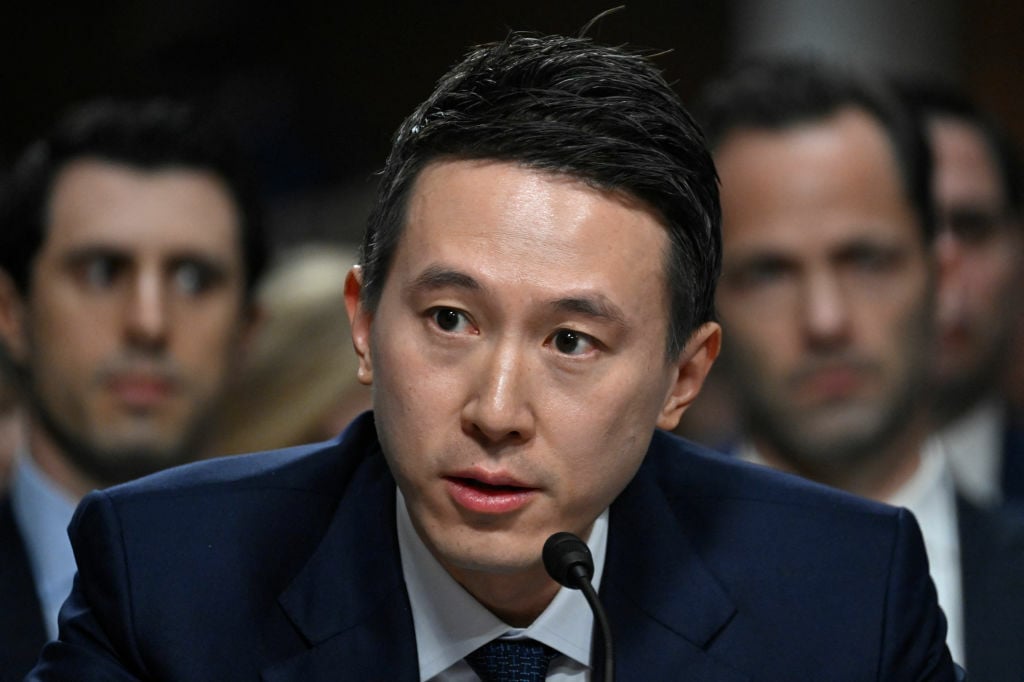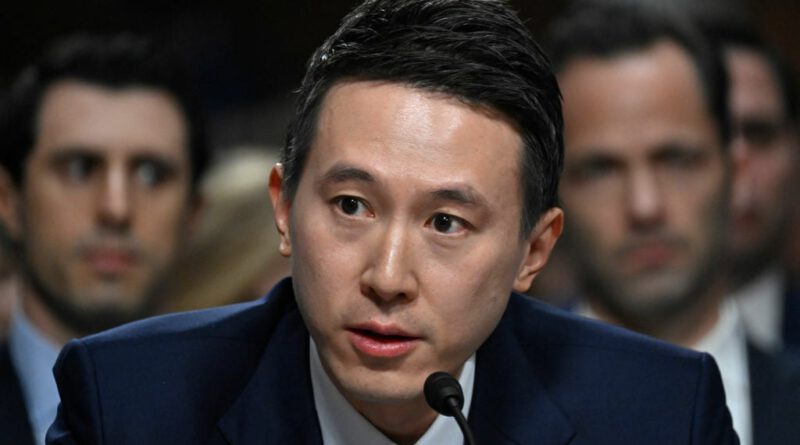TikTok CEO Shou Zi Chew is Singaporean, not Chinese. Somebody please convince Senator Tom Cotton.

The U.S. Senate Judiciary Committee held a four-hour hearing concerning children’s online safety this week, entitled “Big Tech and the Online Child Sexual Exploitation Crisis.” Unfortunately, you’d have no idea this was the subject if you only heard Senator Tom Cotton’s questions for TikTok CEO Shou Zi Chew.
Congress heard testimony from a who’s who of social media CEOs on Wednesday, including Meta’s Mark Zuckerberg, Twitter/X’s Linda Yaccarino, Snap’s Evan Spiegel, and Discord‘s Jason Citron (though the latter three had to be subpoenaed). Each big tech exec was questioned about safety on their platforms, with Zuckerberg even turning to directly apologise to parents whose children had been harmed by social media.
TikTok’s CEO is more likely to become American than Chinese
Yet despite the importance of the topic, the hearing took an aggravating detour when it came time to question Chew, the CEO of ByteDance subsidiary TikTok. Rather than focus on what the video sharing platform is doing to protect children, Arkansas senator Cotton turned his attention to the subject of Chew’s nationality, seemingly unable to comprehend that while TikTok’s CEO is Asian, he is not Chinese.
“Of what nation are you a citizen?” Cotton asked Chew in an exchange that is being widely shared on Twitter/X.
“Singapore, sir,” responded Chew. Singapore is a small, independent island nation in Southeast Asia which is not and has never been a part of China.
“Are you a citizen of any other nation?” continued Cotton.
“No, senator.”
Others in this situation would move on, or present evidence to the contrary if they had any. Instead, Cotton proceeded to pursue this line of questioning for a full minute, seemingly unable to take the truth for an answer. Finding new ways to repeatedly pose the same question, Cotton asked if Chew has ever applied for Chinese citizenship (“No, I did not”), whether he has a Singaporean passport (“Yes, and I served my military for two and a half years in Singapore”), and whether he holds any other passports (“No, senator”).
In fact, Chew indicated that he may apply for American citizenship, as his wife and children are U.S. citizens. Still, this didn’t satisfy Cotton.
“Have you ever been a member of the Chinese Communist Party?” asked Cotton.
“Senator, I’m Singaporean,” said Chew, beginning to sound a bit incredulous at this stage. “No.”
“Have you ever been associated or affiliated with the Chinese Communist Party?”
“No, senator. Again, I am Singaporean.”
Then, bizarrely, Cotton pressed Chew on his view of the events in Tiananmen Square, Beijing in 1989, whether the Chinese government is committing genocide against the Uyghur people, and whether Chinese president Xi Jinping is a dictator.
Again, this hearing was about children’s online safety.
Cotton’s line of questioning was disappointing, and not only because it bore little relation to the actual subject of the hearing. The issue of Chew’s nationality had been thoroughly addressed before this week, with TikTok’s CEO having constantly and consistently restated that he is Singaporean, born, raised, and currently residing.
The exchange between Cotton and Chew drew significant attention online, with many criticising the senator for his “xenophobic,” “racist” questioning and likening it to McCarthyism. Others compared it to a scene from King of the Hill in which protagonist Hank asks Kahn whether he is Chinese or Japanese despite being clearly told he is Laotian.
There are legitimate concerns about TikTok’s safety. This is not one of them.
Overall, Cotton’s aggressive interrogation appeared more like a grandstanding waste of time than a productive portion of the hearing. Still, the senator stood behind it. Hours after the hearing concluded, Cotton claimed on Fox News that “Singapore unfortunately is one of the places in the world that has the highest degree of infiltration and influence by the Chinese Communist Party.
Setting aside Cotton’s apparent belief that there is a real and significant likelihood of Singaporean citizens being agents for the Chinese Communist Party — a belief he failed to voice at the hearing — the senator was unable to provide any evidence to support his implication that Chew is sympathetic to the Chinese government. When asked on Fox News, Cotton merely cited the fact that TikTok’s CEO has previously worked for other Chinese companies.
Though Cotton’s allegations about TikTok’s ties to the Chinese government were by far the most tenuous, he wasn’t the only senator who expressed concern. Known TikTok enemy Senator Josh Hawley grilled Chew about TikTok’s Chinese employees accessing U.S. users’ data, accusing the company of essentially being “an espionage arm for the Chinese Communist Party.”
An internal investigation by TikTok in 2022 did find that four employees in China had improperly accessed the data of two U.S. journalists, however the company addressed the situation and has since made efforts to wall off American users’ data. This included investing $ 1.5 billion and dedicating 2,000 employees to Project Texas, an initiative to restructure TikTok so that U.S. data is stored in the U.S. by U.S. company Oracle.
Chew became a TikTok meme and internet hero after a congressional hearing last March, with users posting fan edits of the CEO and praising him for his patient answers to lawmakers’ stunningly misinformed questions. Sadly, it seems Congress hasn’t learnt much in the year since.
TikTok certainly isn’t a perfect company, and its efforts to protect American users’ data still have flaws. But if U.S. lawmakers want to make any sort of impact when it comes to addressing online safety, or even just earn the support of their internet-savvy constituents, they’re going to have to significantly rethink their approach.

